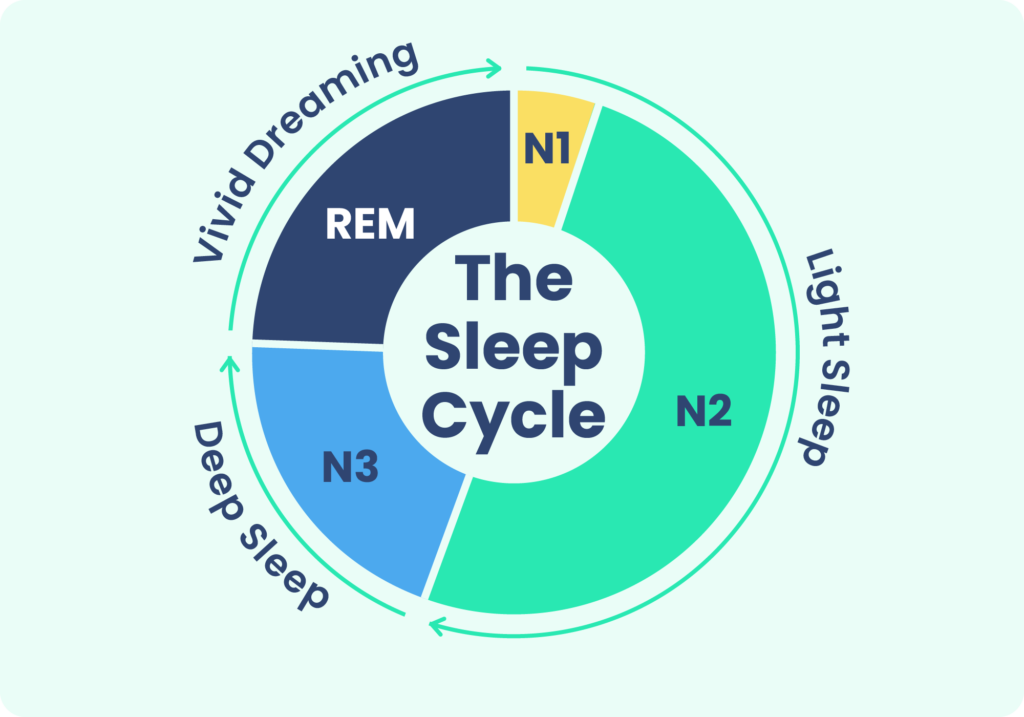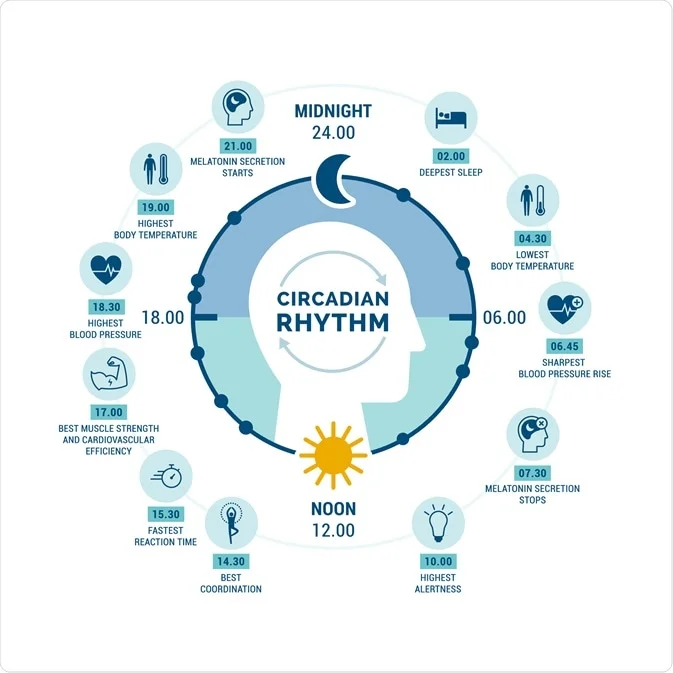The Complete Guide to Sleep Optimization: Transform Your Rest for Peak Performance
The Complete Guide to Sleep Optimization: Transform Your Rest for Peak Performance

What is Sleep Optimization?
Sleep optimization is the practice of enhancing your sleep quality through science-backed strategies that work with your body's natural rhythms. Unlike simply trying to sleep longer, sleep optimization focuses on maximizing the restorative benefits of each hour you spend asleep.
Research shows that Americans spend approximately one-third of their lives sleeping, yet many struggle with poor sleep quality. Sleep optimization addresses this by targeting the root causes of sleep disruption and implementing evidence-based solutions that improve both the depth and efficiency of your rest.
The Science Behind Sleep Quality

Understanding Sleep Stages
Your sleep occurs in cyclical stages, each serving specific restorative functions. Non-REM sleep includes three stages: light sleep (Stage 1), deeper sleep (Stage 2), and deep sleep (Stage 3). REM sleep, where most dreaming occurs, is crucial for memory consolidation and emotional processing.
During deep sleep, your body releases growth hormone, repairs tissues, and strengthens your immune system. REM sleep supports cognitive function, creativity, and emotional regulation. Sleep optimization ensures you spend adequate time in each stage.
The Role of Circadian Rhythms
Your circadian rhythm is your body's internal 24-hour clock, regulated by the suprachiasmatic nucleus in your brain. This biological timekeeper responds to light and darkness, influencing hormone production, body temperature, and alertness levels throughout the day.

Quality vs. Quantity: Why Less Can Be More
The traditional "8-hour rule" doesn't apply to everyone. Sleep optimization research reveals that sleep quality often matters more than duration. A person getting 6 hours of uninterrupted, deep sleep may feel more refreshed than someone who spends 9 hours tossing and turning.
Sleep efficiency—the percentage of time you're actually asleep while in bed—is a key metric. Optimal sleep efficiency ranges from 85-95%. This means if you're in bed for 8 hours, you should be asleep for at least 6.8-7.6 hours to achieve quality rest.
Individual Sleep Needs Vary
While adults typically need 7-9 hours of sleep, your optimal duration depends on factors including:
- Age and developmental stage
- Genetic factors
- Physical activity levels
- Overall health status
- Stress levels and mental health
10 Evidence-Based Sleep Optimization Strategies
1. Master Your Sleep Environment
Create a bedroom sanctuary optimized for rest. Research indicates the ideal sleep temperature is between 60-67°F (15-19°C). Use blackout curtains or eye masks to eliminate light pollution, and consider white noise machines to mask disruptive sounds.

2. Regulate Light Exposure
Light exposure directly impacts melatonin production. Get 15-30 minutes of natural sunlight within an hour of waking to reset your circadian rhythm. In the evening, dim lights 2-3 hours before bedtime and use blue light blocking glasses when using electronic devices.
3. Optimize Your Pre-Sleep Routine
Establish a consistent wind-down routine 1-2 hours before bed. This might include gentle stretching, reading, meditation, or taking a warm bath. Consistency signals to your brain that sleep time is approaching.
4. Strategic Nutrition Timing
Stop eating large meals 3-4 hours before bedtime to prevent digestive disruption. If hungry, choose tryptophan-rich foods like turkey, almonds, or cherries. Avoid caffeine after 2 PM and limit alcohol, which disrupts sleep architecture despite its initial sedating effects.
5. Exercise for Better Sleep
Regular physical activity improves sleep quality by reducing stress hormones and promoting deeper sleep stages. However, avoid vigorous exercise within 3-4 hours of bedtime, as it can be too stimulating.
6. Stress Management and Relaxation
Chronic stress elevates cortisol levels, interfering with sleep. Practice stress-reduction techniques like progressive muscle relaxation, deep breathing exercises, or mindfulness meditation to calm your nervous system before bed.
7. Sleep Schedule Consistency
Maintain consistent sleep and wake times, even on weekends. This strengthens your circadian rhythm and improves sleep efficiency. If you must change your schedule, do so gradually in 15-30 minute increments.
8. Strategic Napping
If you nap, limit it to 20-30 minutes and avoid napping after 3 PM. Power naps can boost alertness without interfering with nighttime sleep architecture.
9. Temperature Regulation
Your core body temperature naturally drops before sleep. Support this process by keeping your bedroom cool and wearing breathable sleepwear. Consider cooling mattress toppers or fans for optimal temperature control.
10. Technology and Sleep Hygiene
Establish a "digital sunset" 1-2 hours before bed. The blue light from screens suppresses melatonin production. If you must use devices, use blue light filters and keep them at arm's length.
Common Sleep Optimization Mistakes to Avoid
The "Sleep Debt" Myth
You can't simply "catch up" on lost sleep during weekends. Irregular sleep patterns disrupt your circadian rhythm and can lead to "social jet lag," where your internal clock conflicts with your social schedule.
Over-Reliance on Sleep Aids
While occasional use of natural sleep aids like melatonin can be helpful, dependency on sleep medications can disrupt natural sleep architecture. Focus on optimizing sleep hygiene first.
Ignoring Sleep Quality Metrics
Don't just track sleep duration. Monitor sleep efficiency, time to fall asleep, and how refreshed you feel upon waking. These quality indicators are more important than total hours.
How to Track Your Sleep Optimization Progress

Use a combination of subjective and objective measures to track your sleep optimization progress:
- Sleep diary: Record bedtime, wake time, and subjective sleep quality
- Wearable devices: Track sleep stages, heart rate variability, and movement
- Energy levels: Monitor daytime alertness and cognitive performance
- Mood assessments: Note emotional regulation and stress levels
Frequently Asked Questions
How long does it take to see results from sleep optimization?
Most people notice improvements in sleep quality within 1-2 weeks of implementing sleep optimization strategies. However, full circadian rhythm adjustment can take 2-4 weeks of consistent practice.
Can sleep optimization help with insomnia?
Sleep optimization techniques can significantly improve chronic insomnia symptoms. However, severe sleep disorders may require professional medical evaluation and treatment alongside optimization strategies.
What's the difference between sleep optimization and sleep hygiene?
Sleep hygiene refers to basic habits that promote good sleep, while sleep optimization is a more comprehensive approach that includes personalized strategies based on your specific sleep patterns and lifestyle factors.
Should I use sleep supplements for optimization?
Natural supplements like magnesium and melatonin can support sleep optimization when used appropriately. However, focus on behavioral and environmental changes first, and consult a healthcare provider before starting any supplements.
How does age affect sleep optimization strategies?
Sleep needs and patterns change with age. Older adults may benefit from earlier bedtimes, strategic light exposure, and addressing age-related sleep disorders as part of their optimization approach.
Transform Your Life Through Better Sleep
Sleep optimization isn't just about feeling more rested—it's about unlocking your full potential. Quality sleep enhances cognitive performance, emotional regulation, immune function, and overall life satisfaction. By implementing these evidence-based strategies consistently, you can transform your sleep from a necessity into a powerful tool for peak performance.
Remember that sleep optimization is a personalized journey. What works for others may need adjustment for your unique circumstances. Start with the fundamentals—consistent schedule, optimal environment, and good sleep hygiene—then fine-tune your approach based on your results.
Ready to Share Your Sleep Success?
If this guide helped optimize your sleep, share it with friends and family who could benefit from better rest. Quality sleep is one of the best gifts you can give yourself and encourage in others.
Share this article on social media and help others discover the power of sleep optimization!